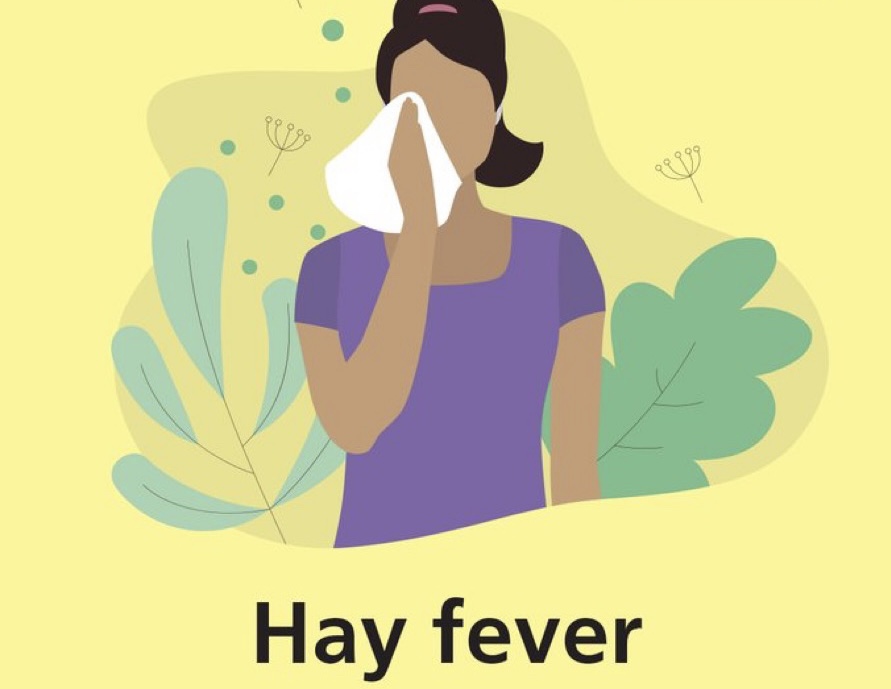David Beckham surprises fans with details of ailment her suffers from

David Beckham has surprised his millions of Instagram followers by explaining that he suffers from hay fever and that the symptoms have kicked in today.
Posted on his Instagram stories, he reveals that hay fever gives him a great deal of discomfort and that he suffers from irritated and watery eyes. If you, like David Beckham suffer from this ailment then Alastair Lockwood, eye health specialist and ophthalmologist at Feel Good Contacts offers some quick and easy tips on how to stop sore, irritated eyes from hay fever, for good!
What is hay fever?
Hay fever is the common name for allergic rhinitis, an allergy that arises when the body overreacts to allergens and causes inflammation in the nose. The allergy is often suffered at certain times of the year, and typically reoccurs each year for sufferers.
This type of hay fever is referred to as ‘seasonal’, while some people also suffer from ‘perennial hay fever’, which occurs all year round.
Hay fever is said to affect one in five people during their lives and is a common problem that can get in the way of your day-to-day life. However, if you understand the cause behind the condition, when you’re at your biggest risk and the treatments are available, you’ll be much better prepared come spring and summertime.
What causes hay fever?
Hay fever occurs when your immune system overreacts to the inhalation of harmless allergens such as pollen, dust or pet dander, releasing substances called histamines into the bloodstream to ‘protect’ your body from these allergens.
These histamines are behind the inflammation of the nasal passage, sinuses and eyelids, causing congestion that, while intended to stop the allergens from getting into your body, actually causes discomfort and irritation.
Seasonal hay fever typically occurs in spring and summer, caused by the extra pollen in the air. Pollen from trees is the usual suspect for triggering hay fever, while grass and weed pollen are much more likely to be behind the allergy in the summer.
In the summer months, pollen is in abundance in the air and can easily be inhaled, causing an allergic reaction within the nose and sinuses. Eyes can also be affected by pollen that gathers on them or on the skin around them, leading to discomfort and irritation.
For sufferers of perennial hay fever, allergies are more likely to be caused by other allergens than pollen. These other allergens can include dust, mould and pet dander.
What are the symptoms of hay fever?
Due to nasal inflammation, common symptoms of hay fever include a runny or stuffy nose, as well as repeated sneezing and itchy sinuses. However, eyes can also display a number of uncomfortable symptoms, becoming red, itchy and watery when affected.
Other symptoms of hay fever can include headache, earache and general fatigue.
How to get rid of hay fever?
At any chemist/optician’s in the UK, you’ll be able to find over-the-counter (OTC) eye drops, specially designed to combat the symptoms of hay fever. These eye drops contain antihistamine, which works to relieve symptoms and bring down the allergy.
Other OTC medicines you can find at your local chemists include antihistamine nasal sprays and antihistamine tablets.
If you find that your symptoms don’t improve after you’ve used one of these medications, then you should visit your GP to discuss your condition.
While there are simple and highly effective treatments available, there are also a few precautions you can take to protect yourself from hay fever.
How to prevent hay fever
Limit exposure
It’s worth remembering that the pollen count is typically higher earlier in the morning and in the evenings during summer time. If possible, try to leave the house outside of these times. And if you are staying in, it’s a good idea to keep the windows closed to prevent pollen from getting in.
The Met Office can tell you what the pollen count is in your area that day, so it’s worth checking this before you venture out.
Clothing
Change your clothes after coming in from outside during hay fever season, as the fabric will have undoubtedly picked up bits of pollen while you were out.
Shoes
It’s also a good idea to keep your shoes stored away, and as close to the door as possible, to prevent pollen being spread throughout the house.
Wash regularly
As well as on clothing, pollen can quite easily gather on your skin while you’re out of the house. Regular washing, especially of your hands and face (including the areas around your eyes) can help clear away any pollen before it can cause irritation.
Cold Compress
For immediate relief you could try a cold compress. These type of convenient and cost effective masks need to be kept in the fridge so that they are ready to give you the instant cooling relief needed to soothe sore eyes.
Dailies over monthlies
If you’re a monthly or two weekly contact lens wearer during hay fever season, it might be worth speaking with your optician to see if you can switch to daily contact lenses. By replacing the lenses daily, you’ll guarantee that you’ll be applying pollen-free lenses.
However, if you would rather stick with your monthlies or two weeklies, just take extra care to thoroughly clean and store them overnight in contact lens solution to get rid of any tiny bits of pollen that may have accumulated.
Wear wrap-around sunglasses
Not just for UV protection, wrap-around sunglasses offer your eyes and the areas around your eyes protection from pollen in the air that could cause irritation.
While other styles of sunglasses also offer protection, wrap-around styles have proven particularly effective during hay fever season due to their full coverage.
Finally
Summer can be a difficult time for hay fever sufferers. By following these tips, the itchy, sore and irritated eyes associated with hay fever will be alleviated so that you can enjoy this glorious time of year.




